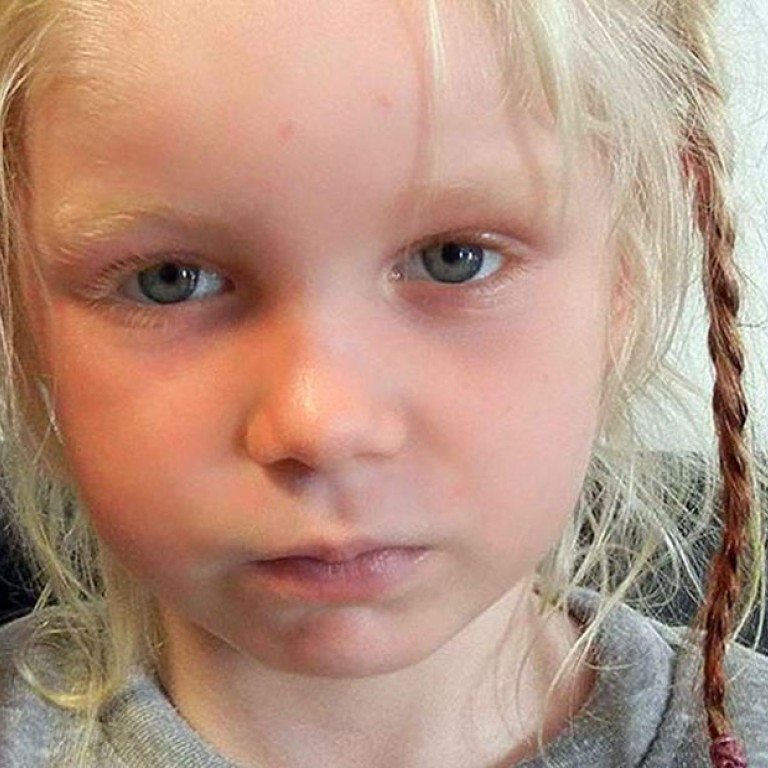
Roma feel backlash across Europe of 'abducted' children stories
Backlash against communities across Europe widens in reaction to recent cases involving children suspected of having been abducted
For centuries across Europe, children were raised on folk tales with a disturbing warning not to wander into the woods or risk being snatched by gypsies.
Such a saying seems an anachronism, but the stereotype of the child-stealing gypsy has been reawakened since last week when a couple in Greece were jailed on accusations that they had abducted a blonde, green-eyed child called Maria.
Last week, two blond Roma children were taken from their parents in Ireland under suspicions they had been abducted.
The children in Ireland were quickly returned to their families after DNA testing confirmed that the Roma were their parents. In Greece, the police confirmed on Friday that Maria was the child of a Roma couple from Bulgaria.
An investigation continues into whether Maria was sold, adopted or given to the couple as they have claimed.
Whatever the outcome, Roma say that it is they who now live in fear of having their children snatched for no reason other than their cultural identity or skin colour.
The cases, they say, have helped fan a sometimes violent backlash against the 11 million Roma across Europe. In an era of budget cuts and high unemployment, politicians have singled out Roma as emblematic of the problems of illegal immigration and questioned whether they can be integrated.
"Imagine if the situation were reversed and the children were brown and the parents were white. Would they have ever been taken away?" Dezideriu Gergely, director of the European Roma Rights Centre in Budapest, asked.
"The most dangerous consequence of the hysteria is that now we have to live in fear that our children can be removed from us on the basis of a wrong perception. No one should be profiled on the basis of their ethnicity."
Despite such warnings, anti-Roma sentiment appears to be spreading.
On Wednesday, Serbian media reported that over the weekend a group of skinheads in Novi Sad, in central Serbia, had tried to abduct a Roma child in front of his home because his skin was fairer than that of his father, Stefan Nikolic.
In Italy, the anti-immigrant Northern League responded to news of the Greek girl's supposed abduction by demanding inspections of all Roma communities to check for missing children.
Rights groups say that even before the kidnapping cases violence and intimidation against Roma were intensifying.
This month, a woman threw acid at a boy, aged two, and his mother in Naples, according to the European Roma Research Centre. In Hungary, at least seven Roma were killed between 2008 and 2010, and leaders have counted dozens of fire-bomb attacks in the past.
In Greece, where the far-right Golden Dawn movement has been fanning anti-immigrant sentiment, the head of the Greek Union of Roma, Yiannis Halilopoulos, said the sensational media coverage and the racial profiling that followed the removal of Maria had "taken us back 100 years".
In the Czech Republic, ultra-right parties and their neo-Nazi supporters this year have organised about 30 anti-Roma marches, where some have chanted, "Gypsies to the gas chambers", rights groups said.
In France, where the Roma issue has flared as part of a debate over immigration, the far-right National Front has made Roma a key issue before municipal elections in March.
Its leaders have warned that if Romanians and Bulgarians were allowed to travel in the European Union's passport-free zone, the country could see a flood of Roma immigrants.
This month, French President Francois Hollande intervened after a Roma girl, 15, whose family was living illegally in France for five years, was pulled off a bus by authorities and expelled to Kosovo. After loud protests, Hollande agreed to allow the girl to return if she left her family behind.
